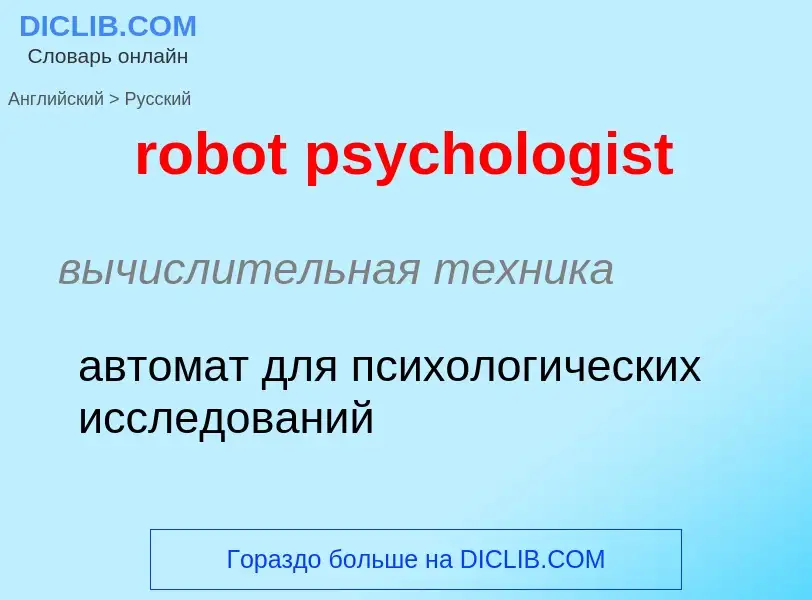Перевод и анализ слов искусственным интеллектом ChatGPT
На этой странице Вы можете получить подробный анализ слова или словосочетания, произведенный с помощью лучшей на сегодняшний день технологии искусственного интеллекта:
- как употребляется слово
- частота употребления
- используется оно чаще в устной или письменной речи
- варианты перевода слова
- примеры употребления (несколько фраз с переводом)
- этимология
robot psychologist - перевод на русский
вычислительная техника
автомат для психологических исследований
общая лексика
промышленный робот
робот, предназначенный для работы в производственных условиях
Смотрите также
Определение
Википедия
Traffic psychology is a discipline of psychology that studies the relationship between psychological processes and the behavior of road users. In general, traffic psychology aims to apply theoretical aspects of psychology in order to improve traffic mobility by helping to develop and apply crash countermeasures, as well as by guiding desired behaviors through education and the motivation of road users.
Behavior is frequently studied in conjunction with crash research in order to assess causes and differences in crash involvement. Traffic psychologists distinguish three motivations of driver behavior: reasoned or planned behavior, impulsive or emotional behavior, and habitual behavior. Additionally, social and cognitive applications of psychology are used, such as enforcement, road safety education campaigns, and also therapeutic and rehabilitation programs.
Broad theories of cognition, sensory-motor and neurological aspects psychology are also applied to the field of traffic psychology. Studies of factors such as attention, memory, spatial cognition, inexperience, stress, inebriation, distracting/ambiguous stimuli, fatigue, and secondary tasks such as phone conversations are used to understand and investigate the experience and actions of road users.




![mouse]] mouse]]](https://commons.wikimedia.org/wiki/Special:FilePath/Staubli Teach pendant.jpg?width=200)
